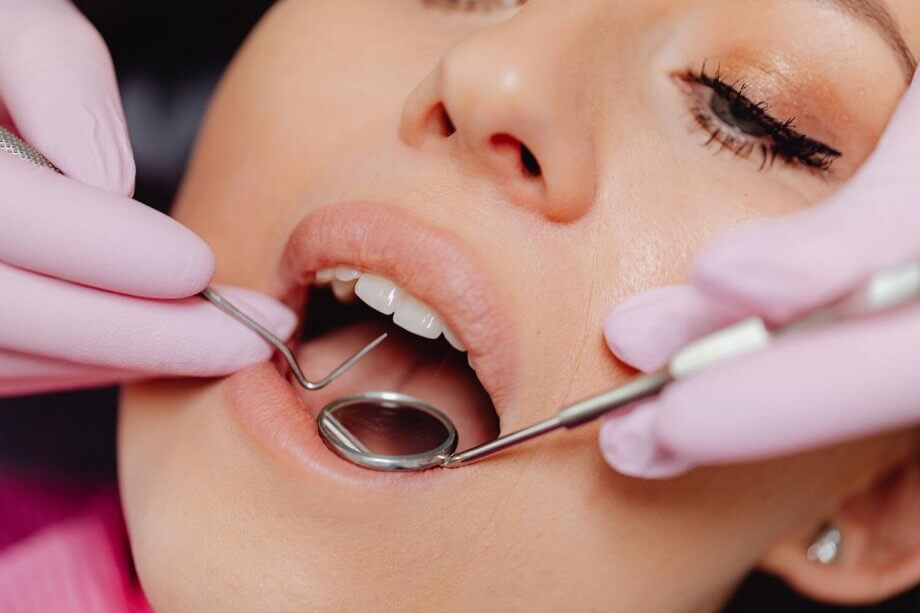If you’re looking for a way to improve the look and health of your teeth, dental crowns are a great solution. They can cover up discolored or damaged teeth, protect a tooth from breaking under pressure, or fill in gaps that make your smile less than perfect. Crowns are also commonly used as the last step of a root canal or dental implant procedure.
But how do you know if a dental crown is right for you? What kind should you get? And how much will it cost? We’ve got all the answers—and more!
1. Dental crowns are a safe, effective way to protect damaged, broken or decayed teeth.
A dental crown is a cap placed over a tooth to restore its shape, size, and strength. It can be made of various materials, including porcelain, ceramic, and metal. Dental crowns are used for a variety of reasons, including to protect a damaged tooth, to improve the appearance of a tooth, or to hold a dental bridge in place.
2. Exploring your options: The different types of dental crowns
As you know, there are various types of dental crowns. The one you choose depends on your needs and preferences.
- 1-visit CEREC crowns – Don’t require a temporary or return visit to our office. These tooth-colored porcelain crowns can be crafted and bonded into place in just a single visit to our office.
- Gold crowns – Known for their strength, gold crowns are very durable but lack the aesthetics of tooth-colored crowns
- Zirconia – Also called ceramic crowns or tooth-colored crowns, zirconia is very durable and looks great, too.
3. The step-by-step process of getting a dental crown
The process of placing a dental crown typically involves the following steps:
- Preparation: The tooth is reshaped to make room for the crown.
- Impression: An impression of the tooth is taken and used to create a crown model.
- Fabrication: The crown is made based on the model. This process may take a few weeks.
- Fitting: The crown fits onto the prepared tooth to ensure it fits properly.
- Cementing: The crown is cemented onto the tooth using a special dental adhesive.
Busy life? You can also get your crown on the same day thanks to CEREC technology.
Unlike traditional dental crowns, the CEREC system uses 3D imaging technology to create the “blueprint” used to craft your finished crown. The result is an extremely precise and natural-looking restoration that can be made in under an hour, while you wait in our comfortable office. Get in, get out, and get on with your life!
4. Advantages of getting dental crowns
Dental crowns can help to prevent further damage to the tooth and can improve overall oral health. They can also be used in conjunction with other dental procedures, such as root canals or dental bridges, to restore the function and appearance of the teeth.
There are several advantages to using dental crowns, including:
- Improved tooth function
- Improved appearance
- Increased protection for damaged teeth
- Improved teeth strength
5. Potential risks and complications of dental crowns
Dental crowns are a common and generally safe dental procedure, but like any medical treatment, there are potential risks and complications that can occur.
Some of the potential risks and complications of dental crowns include:
- Sensitivity to hot or cold foods and drinks after getting a crown. This typically resolves on its own within a few weeks.
- Allergic reaction to the materials used in crowns.
- Crowns can break or crack if they are subjected to too much force or pressure.
- Crowns could become loose if the cement used to hold them in place fails.
It’s important for patients to discuss any potential risks and complications with their dentist before undergoing the procedure, and to follow post-procedure care instructions to reduce the risk of complications. It is also important to maintain good oral hygiene and to visit the dentist regularly to ensure the long-term success of your dental crown.
6. Caring for your dental crowns
Proper care and maintenance of dental crowns are essential for ensuring their long-term success and maintaining good oral health. Like any dental restoration, they require proper care to remain in good condition.
By following these simple steps, you can help to ensure that your dental crowns remain strong, functional, and attractive for years to come:
- Brush and floss regularly: This will help remove plaque and prevent gum disease.
- Avoid hard or sticky foods: These can damage or loosen the crown.
- Avoid biting on hard objects: This can also damage or loosen.
Good oral hygiene habits are also necessary for maintaining dental crowns. You should brush twice daily (once after breakfast and once before bedtime), floss daily, limit sugary drinks and snacks, and avoid smoking or chewing tobacco products—these all contribute to plaque buildup on the teeth that can eventually lead to decay underneath the crowns themselves!
Dental crowns are a great way to enhance your smile!
We hope that this article has helped you understand better the process of getting dental crowns. It can be overwhelming at times, but remember that our team can work with you to answer any questions about what type of dental crowns would work best for you or how much they cost
We look forward to seeing what kind of smile transformation we can create together!
Looking for a dentist in Massapequa who specializes in dental crowns? At Greater Long Island Dental, we are happy to help you! Call us at (516) 798-4223 or book an appointment online.


